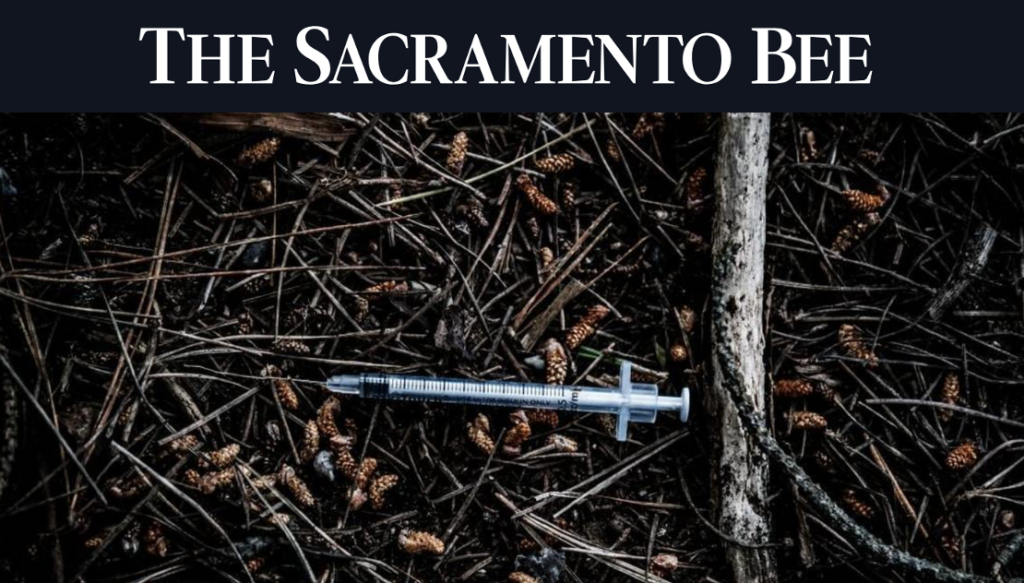By: Thien Ho And Bobbie Singh-Allen
This article was originally published in the Sacramento Bee
In 2014, Californians enacted Proposition 47 — criminal justice reforms designed to end the era of mass-incarceration for non-violent crimes and ease prison overcrowding. Now, a decade later, we can see that for all of the good intentions in this law, it left significant policy gaps as well. That’s why we are supporting Proposition 36 on the November ballot.
Since the passage of Prop. 47, addiction to fentanyl and other dangerous drugs have become an epidemic across our state. Overdoses are skyrocketing and participation in drug courts have plummeted. Research shows that substance abuse is especially prevalent within our unhoused communities.
Indeed, as more and more Californians struggle with untreated addictions, the number of homeless individuals in our state has surged 60%, even though it is falling in most other states.
Prop. 47 took away the ability for judges to mandate and hold drug offenders accountable for completing treatment. It didn’t contemplate the public health crisis of fentanyl. And it has allowed those desperate to support drug habits to steal up to $950, every day — even multiple times per day — without facing any real consequences. This has created a “theft tax” in the amount of hundreds of dollars per year which is paid off by working families already struggling with the effects of inflation.
Today, the combined crises of homelessness, drug addiction and retail theft are hollowing out communities across California like a cancer. Open-air drug markets and tent cities are too common. Instead of costly measures that target individual symptoms, we have to close policy gaps allowing this triple epidemic to metastasize into a perfect storm of suffering. And that’s exactly what Prop. 36 does by expanding the treatment and accountability tools we need to break the cycle of addiction that’s creating even more costly problems down the line.
Prop. 36 honors the highest aspirations of Prop. 47, which assumed that shifting funding from jails to drug treatment options would increase treatment utilization. The opposite has occurred because we removed any consequences for those who fail to pursue the help they need. Specifically, Prop. 36 restores the ability for judges to require those repeatedly convicted of crimes involving fentanyl and other dangerous drugs to complete treatment as an alternative to incarceration. It also offers access to addiction specialists, shelter and job training, and having criminal records expunged upon successful completion of a treatment program.
With overdoses now the leading cause of death amongst Californians aged 15-44, Prop. 36 rightly adds the drug that is driving this wave of preventable fatalities — fentanyl — to the list of hard drugs that can warrant prison time for dealers in possession of large quantities.
Taken together, these measures will save lives and prevent both overdoses and the substantial downstream costs that emerge when addicts are presented with no alternatives to dealing or stealing. In doing so, it builds on the important step Californians took to create more treatment beds this past March.
The governor and state Legislature clearly recognize that the status quo is untenable. That’s why they just passed a new package of laws combating organized rings that often engage in premeditated smash and grabs designed to evade the monetary threshold for felony charges. While this is a laudable step forward, it’s important to remember that those acting alone — whether committed by folks struggling with addiction or not — wreak just as much devastation as organized crime rings.
Ultimately, to address California’s mutually reinforcing crime, addiction and homelessness problems, we have to reform Prop. 47 and close gaps in the law that are only making it harder for us to meet the moment. That’s why many local officials who see this crisis every day are uniting in support of Prop. 36. We see the need for more treatment and accountability tools that can break the cycle of addiction that creates even bigger problems down the line.
Many political partisans have sought to frame these issues as a choice between a strategy of mass incarceration, or being soft on crime and turning a blind eye to the tragedies unfolding around us.
Let’s be clear: It is neither. As non-partisan officeholders tasked with solving problems and enforcing laws in our communities, we are determined to find a better way.
The crises of drugs, crime and homelessness cannot be ignored nor punished into submission. We need policies that can save lives, protect small businesses and working families and bring more of our unhoused neighbors indoors. We need to begin the era of mass treatment.
That’s what Prop. 36 does, and why we are encouraging our neighbors to support this critical common-sense measure.

